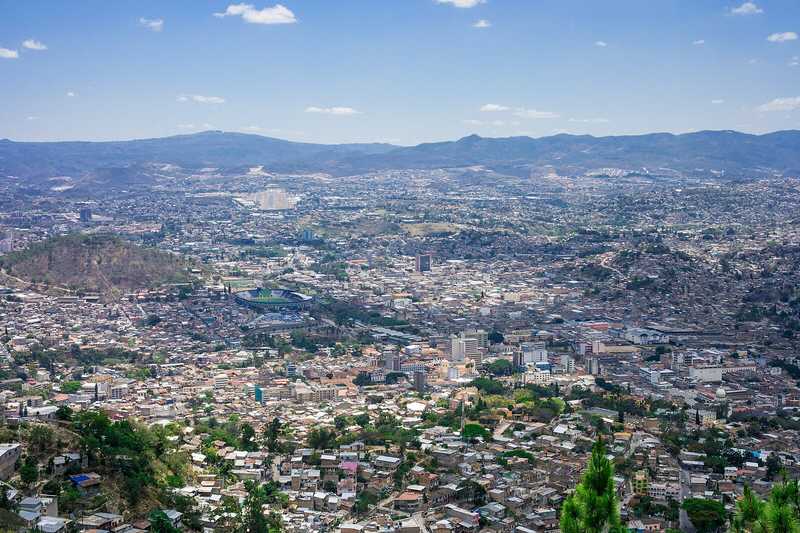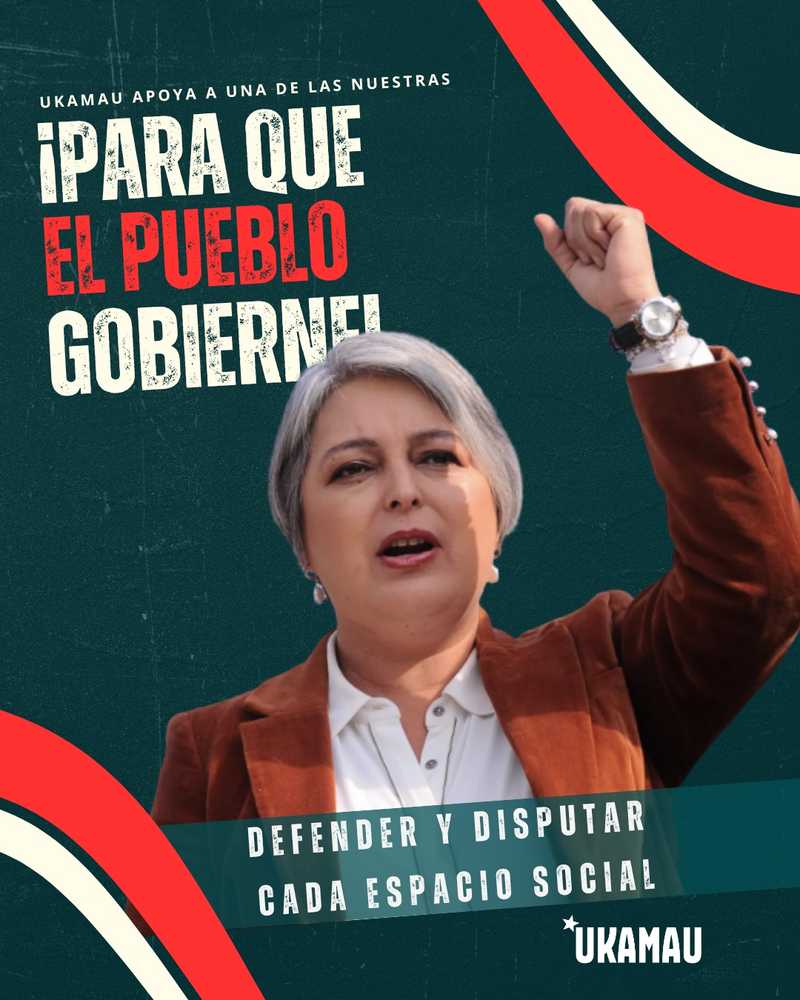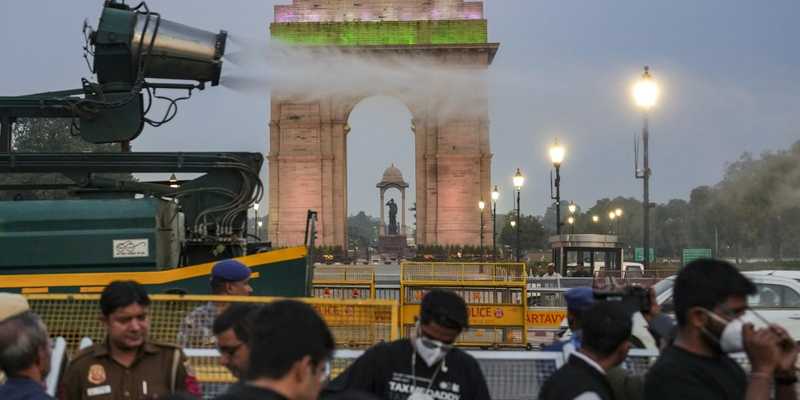
June 1 marks the fourth year of Salvadoran president Nayib Bukele’s five-year term, the last fourteen months of which have unfolded under a State of Exception. As elections near, this small Central American country that once drew global attention for its national liberation struggle against a US-backed military dictatorship once again finds itself under a police state.
Distinct from a State of Emergency, the State of Exception is an extraordinary regime that temporarily suspends constitutionally-guaranteed civil liberties. Bukele’s legislative majority authorized the decree in March 2022 in response to a wave of terror unleashed by El Salvador’s infamous gangs after the collapse of secret negotiations with the administration to reduce homicides. It has been renewed like clockwork every thirty days since. Rights suspended include the freedom of association, the right to inform detainees of the reason for their arrest, the right to counsel, the limit for holding suspects without charge, and protections against illegal searches and surveillance. In fourteen months, over 66,000 people have been disappeared into a notoriously overcrowded penal system. The sweeps have more than doubled El Salvador’s prison population, which has expanded into a newly built mega-prison that the president claims will hold an additional 40,000 inmates.
The government’s doctored homicide statistics notwithstanding, the mass arrests have dealt a blow to street-level criminal structures. For this reason, they were largely welcomed by the beleaguered working-class communities that have suffered the brunt of gang extortions and violence for decades. That relief has come at a high price. “Thousands of people have been detained and remain incarcerated for having police priors, because of an anonymous tip, for having tattoos, because of disagreements, and in order to fulfill the arrest quotas demanded by the police and the Salvadoran Armed Forces,” finds a new report by Salvadoran human rights group Cristosal, which confirmed at least 153 deaths in state custody since the State of Exception began. Denied communication with family members, attorneys, or international monitoring groups like the Red Cross, many perished for lack of medical care for chronic or preventable illnesses. Other victims of violence, sometimes at the hands of guards, sometimes at the hands of inmates. Testimonies from victims and their families provide harrowing accounts of disease, starvation, and torture behind bars.
The constitutional broadside is the latest of many in millennial millionaire and publicist president Nayib Bukele’s contentious tenure. It comes after a May 2021 legislative coup against the judicial branch, which saw the president’s newly-elected supermajority illegally dismiss and replace the attorney general and all five constitutional magistrates, together with a purging of the judiciary’s lower ranks. The new Supreme Court obediently authorized the president’s 2024 run for reelection, despite explicit constitutional prohibitions. In four short years, Bukele and his party have reversed hard-fought democratic gains enshrined in the 1992 Peace Accords that brought a negotiated close to the twelve-year civil war.
The dismantling of El Salvador’s postwar liberal democracy has been met with shrugs from much of the population, unenamored of an exhausted neoliberal political economy that had long since betrayed popular expectations for peace. Indeed, this same popular dissatisfaction propelled Bukele’s predecessors to power in the leftist Farabundo Martí National Liberation Front (FMLN), the party which he opportunistically used as a springboard for his meteoric political career. But where the FMLN had modest—if largely unrealized—aspirations for a developmentalist social democracy, Bukele has failed to posit an alternative to the crisis that continues to drive tens of thousands of Salvadorans to the US-Mexico border. Instead, his government’s disastrous bet on Bitcoin, brazen corruption, and authoritarianism is bankrupting the country. With the economy in tailspin and election season on the horizon, Bukele has opted to double down on repression.
“Let all the ‘human rights’ NGOs know that we are going to destroy these damn murderers and their collaborators, we will throw them in prison and they will never get out,” wrote Bukele in a typically belligerent May 16 tweet: “We don’t care about their pitying reports, their prepaid journalists, their puppet politicians, nor their famous ‘international community’ that never cared about our people. We will heal our country and eliminate this plague for good. They can take their failed recipes somewhere else.”
Bukele retains robust public approval, but he is taking no chances. Already, the government had worked to discredit, demobilize, and demoralize the opposition through lawfare, mounting wide-ranging prosecutions against former FMLN presidents, cabinet members, and party leaders. Now, the State of Exception enables the administration to cast a wider net, with the “war on gangs” deployed as cover for expanding the persecution of dissidents. Victims include public sector union leaders protesting deteriorating conditions under a cash-starved administration. In January, police arrested officers of municipal workers’ unions in two separate San Salvador suburbs over labor disputes. In one instance, police showed up at the home of Miguel Antonio Arana Ventura, Secretary General of the San Marcos municipal workers’ union, after Bukele singled him out on Twitter. Five leaders of the National Printing Press workers’ union were arrested in February. Another municipal labor leader, Leonidas Bonilla, died in state custody in September from a heart attack after months of medical neglect behind bars.
Social movement leaders are also in the crosshairs. On January 11, authorities arrested five prominent anti-mining activists from the town of Santa Marta, Cabañas. These community organizers, who helped lead a decade-long struggle against toxic metals mining that culminated in a world-historic ban in 2017, are also former FMLN combatants. Prosecutors charged them with a crime allegedly committed in the context of the civil war, in violation of the Peace Accords and 1992 reconciliation legislation that allowed for the demobilization and reintegration of former guerillas into Salvadoran society without retaliation. Meanwhile, Bukele has actively obstructed the prosecution of known perpetrators of crimes against humanity like the 1981 massacre of nearly one thousand civilians at El Mozote. Santa Marta residents view the repression as an intimidation play by a government desperate for revenue hoping to resume mining activity in the region.
With an astonishing 1.6% of the population behind bars, El Salvador now boasts the highest incarceration rate in the world. A March 2023 survey by the Jesuit Central American University (UCA) found 86.5% of respondents approved of the State of Exception, though a similar proportion could not identify the constitutional provisions suspended by the decree. But the indiscriminate arrests are taking a toll. In the same study, over one third of respondents knew someone unjustly detained. In response, some family members have begun to organize under the banner of the Movement of Regime Victims (MOVIR).
“We are supporting the families who badly need help. All of the government’s institutions have closed their doors on them,” said Samuel Ramírez, who helped found the group in August 2022. “We get calls every day,” he said, describing MOVIR’s work to inform families about the status of their incarcerated loved ones, connect them with pro-bono legal services, and speak out against the indiscriminate repression. Ramírez, a former FMLN guerilla, is also a member of the Popular Rebellion and Resistance Bloc (BRP). The BRP has been at the forefront of grassroots opposition to Bukele, helping to lead mass marches against the adoption of Bitcoin as legal tender and in defense of the Peace Accords. On May First, MOVIR and the BRP braved police roadblocks to take to the streets of San Salvador alongside groups like the Committee of Family Members of Political Prisoners (COFAPPES) and independent labor unions to call for an end to the State of Exception. “We have mobilized more than a thousand people for marches,” Ramírez said, “That’s very important, people are losing their fear.” At the same time, he acknowledged the risks these actions represented. “We know that our movement disturbs the administration. At some point, we too could be victims of this regime.”
Ahead of the 2024 elections, the BRP has called for uniting left and center political forces in a broad front against Bukele. Thus far, no such coalition has emerged, and prospects for the 2024 elections are grim. Even if opposition forces were to rally, the president’s illegal reelection bid and the country’s constitutional vacuum seriously compromise the process’s legitimacy. “There won’t be free elections here,” Ramírez warned, “Bukele controls everything.” The president has created a formidable media apparatus, combining state-run television, radio, and print media with a vast network of paid internet trolls and influencers. Together with his dominion over all branches of government, to say nothing of the credible threat of state terror to deter challengers, Bukele and his party are likely to tighten their grip on the country, with or without the necessary votes.
Predictably, Bukele’s anti-gang crackdown has turned El Salvador into a beacon for the far right. From Turkey to the Philippines, like-minded actors have seized on the conjuncture of converging global crises to advance reactionary agendas that turn on chauvinism, revanchism, and militarism. In April, Bukele hosted U.S. senator Marco Rubio, who wrote glowingly about the indefinite suspension of constitutional guarantees in the name of law and order for Compact Magazine. But declarations of El Salvador’s victory over organized crime are premature to say the least. Previous, US-backed iterations of zero-tolerance policing in the country resulted in more radical and sophisticated gang structures. The illicit markets within which the gangs operate continue to thrive, as do the crushing conditions of poverty that drove thousands to seek subsistence within their ranks. El Salvador’s crisis may mutate, but it is far from resolved. In the meantime, it is the working class that fills the country’s new prison cells. For the embattled Salvadoran left, the task is to show that the choice between peace and democracy is a false one, and to propose more expansive and inclusive definitions of both. Present conditions suggest that the road ahead is a long one.
Hilary Goodfriend is a postdoctoral fellow with the Latino and Latin American Studies Research Center at the University of California Riverside (UCR).
Photo: Wikimedia





